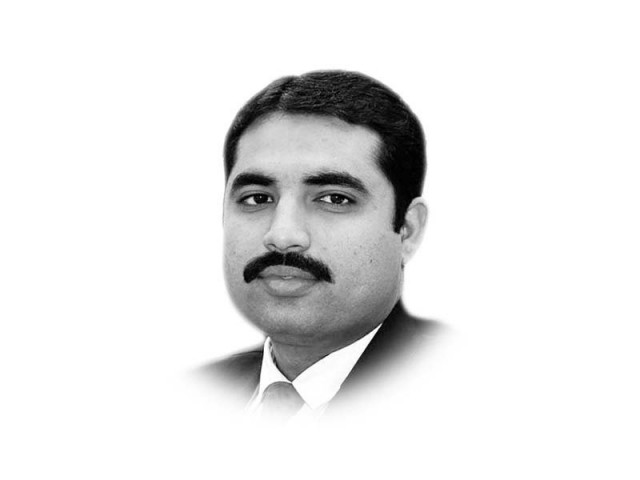The policing system of British rule
Our police have become a force for intimidating people, rather than a public-friendly service

The writer is an advocacy assistant at the Sustainable Development Policy Institute
The implementation of different police orders in different parts of Pakistan has generated disparities among the police force. Although provinces have amended the Police Act, the basic police system is still based on the Police Act of 1861. We are still living with the old police system — which was in fact designed and implemented by the British Empire — to control the mob and ensure that nobody can create a problem for the government. The purpose of the Police Act of 1861 was to introduce the police as a cruel, formidable and intimidating force so that nobody could raise his or her voice against the British Empire.
Even today the same concept is in vogue in Pakistan. Members of the force are still being used as a weapon to rule the majority. The gap between society and the police is worsening by the day. At provincial levels the force is also being used for different purposes and often as personal guards, resulting in disparities between police systems of provinces and the federal capital.
Though different governments tried their hand at bringing in reforms, they failed due to political instability in the country. However, for implementation of reforms in any sector, including the police, we have to ensure a peaceful and stable democratic system.
Reforming our police on modern methods and technologies is one of the greatest challenges in the country today. The Police Order 2002, which was promulgated on August 14th 2002, replaced the Police Act of 1861 in all the four provinces but it was not extended to the Islamabad Capital Territory (ICT), Gilgit-Baltistan or Azad Jammu and Kashmir. Based on the Police Order 2002, Punjab and K-P introduced their own police orders. Sindh initially adopted the same but later on, in 2011, it reverted to the Police Act of 1861, and the ICT and Fata also have the same old act in place with some minor changes.
As a result, our police service is now in a state of fragmentation, an example of which is the lack of coordination between the ICT and Punjab police evident during the recent Faizabad sit-in. Until and unless we move towards a uniformed police law, we may not get out of this quagmire. Weak prosecution and poor investigation by the police contribute to this sorry state of affairs. Hence, the police need to play a proactive and leadership role in the current circumstances.
Moreover, police reforms cannot be effectively implemented unless we do not reform our criminal investigation system. The lack of political will, resources and monetary support, external interferences and resistance from the bureaucracy are major hurdles in the way of effectively implementing the Police Order 2002.
Our police have become a force for intimidating people, rather than a public-friendly service. We have yet to change the one-and-a-half-century-old police system. This system is not compatible with the modern-day needs. In fact, the Police Order 2002 is an excellent document which will ensure that the police force will serve as a role model for society.
Along with the implantation of a uniformed police system at provincial and federal levels, interaction and coordination between the police and citizens is the need of the hour at the community level — a goal to be aspired for.
An advanced and friendly police system is indeed important for any country. In developed countries, the police force always works as a public servant of society. That is the main reason why law enforcers are considered important and respectable members of society.
Developed countries all over the world have realised the importance of the efficient role of the police to maintain peace and they have developed their police system according to the demands and requirements of their own countries.
Published in The Express Tribune, March 6th, 2018.
Like Opinion & Editorial on Facebook, follow @ETOpEd on Twitter to receive all updates on all our daily pieces.















COMMENTS
Comments are moderated and generally will be posted if they are on-topic and not abusive.
For more information, please see our Comments FAQ